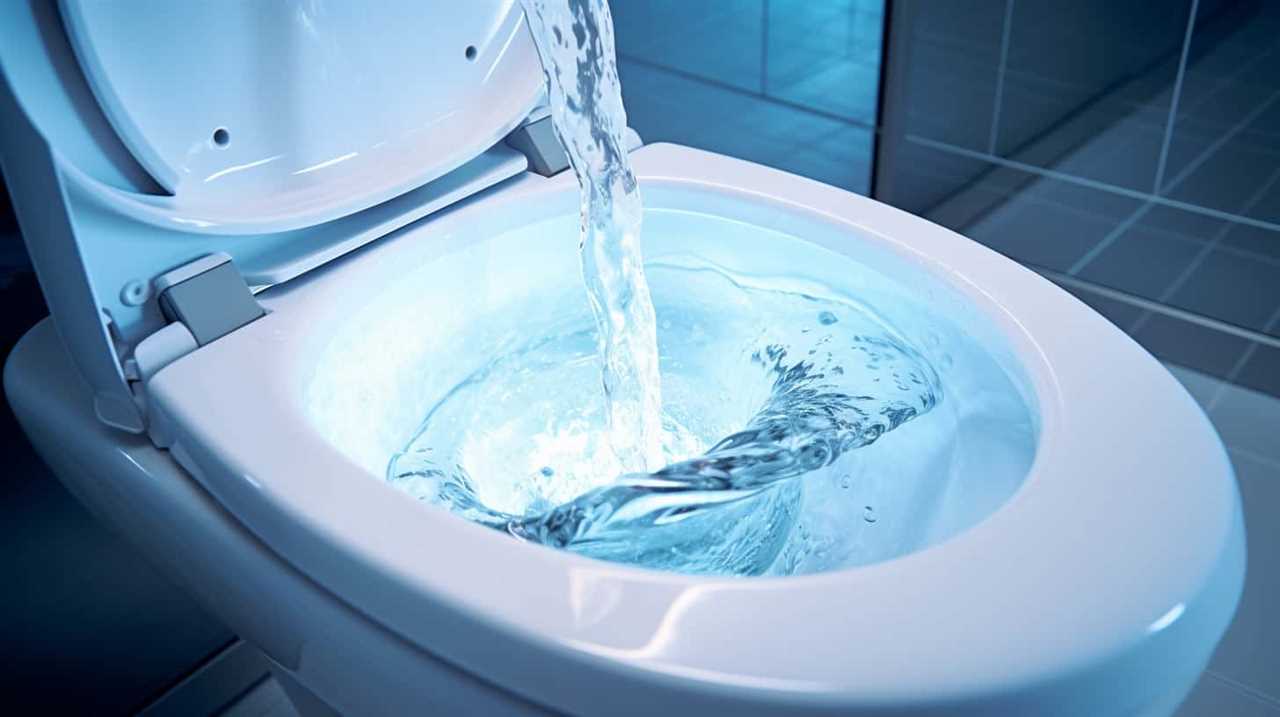Do coffee grounds decompose? This inquiry has piqued the interest of both coffee aficionados and those mindful of environmental sustainability.
In this article, we will explore the composition of coffee grounds and the factors that affect their breakdown. We will delve into the decomposition process and examine the environmental impact of coffee grounds disposal.
Furthermore, we will present sustainable ways to dispose of coffee grounds. Get ready to master the art of understanding coffee’s journey from bean to compostable material.
Key Takeaways
- Coffee grounds provide essential nutrients to plants and improve soil structure, moisture retention, and drainage.
- Factors such as moisture, temperature, oxygen levels, and other organic matter affect the breakdown process of coffee grounds.
- Coffee grounds can decompose within a few weeks to a few months, releasing essential nutrients for healthy plant growth.
- Coffee grounds can be sustainably disposed of by using them as natural fertilizer, biomass fuel, or incorporating them into soil for enhanced fertility.
The Composition of Coffee Grounds
Coffee grounds break down because they consist of various organic compounds that undergo decomposition when exposed to certain conditions. When used as fertilizer, coffee grounds provide essential nutrients like nitrogen, phosphorus, and potassium to plants. These nutrients are released slowly over time, promoting healthy growth and development. Coffee grounds also improve soil structure, moisture retention, and drainage, making them an excellent addition to composting.

In compost, coffee grounds contribute to the breakdown of other organic materials, accelerating the decomposition process. Additionally, coffee grounds act as a natural pest deterrent, repelling slugs, snails, and certain insects. However, factors such as moisture, temperature, and the presence of other organic matter can affect the breakdown of coffee grounds. Understanding these factors is crucial in optimizing the use of coffee grounds in fertilization and composting practices.
In the following section, we’ll delve deeper into the specific factors that influence the breakdown of coffee grounds.
Factors Affecting the Breakdown of Coffee Grounds
To understand the breakdown of coffee grounds, several factors must be considered. Factors affecting decomposition can vary and have an impact on the rate at which coffee grounds break down. These factors include:
- Moisture: Adequate moisture levels are crucial for the decomposition process. Coffee grounds need moisture to facilitate microbial activity and the breakdown of organic matter.
- Temperature: Decomposition rates increase with higher temperatures. Warmer environments provide optimal conditions for microorganisms to break down coffee grounds more efficiently.
- Oxygen: Adequate oxygen levels are essential for the decomposition of coffee grounds. Oxygen supports the growth of aerobic bacteria, which play a vital role in the breakdown process.
The effects of decomposition on soil quality are significant. As coffee grounds break down, they release nutrients such as nitrogen, phosphorus, and potassium into the soil, enriching its fertility. Additionally, the organic matter from the decomposition process enhances soil structure, water retention capacity, and promotes beneficial microbial activity.

Understanding these factors can help optimize the use of coffee grounds for soil amendment and sustainable gardening practices.
The Decomposition Process of Coffee Grounds
As we delve into the decomposition process of coffee grounds, it’s important to understand the role that microorganisms play in breaking down these organic materials.
The coffee grounds decomposition timeline can vary depending on several factors, including temperature, moisture levels, and the presence of oxygen. In ideal conditions, coffee grounds can decompose within a few weeks to a few months.
This process is facilitated by microorganisms such as bacteria and fungi, which break down the organic matter and convert it into nutrient-rich compost.

The benefits of using coffee grounds as compost are numerous. Coffee grounds add organic matter to the soil, improving its structure and water retention. They also release essential nutrients like nitrogen, phosphorus, and potassium, promoting healthy plant growth.
Incorporating coffee grounds into your composting routine can be a sustainable and effective way to reduce waste and enhance soil fertility.
Environmental Impact of Coffee Grounds Disposal
Continuing from the previous subtopic, our disposal of coffee grounds can have a significant environmental impact. When coffee grounds are thrown into the trash, they end up in landfills where they contribute to the production of methane gas, a potent greenhouse gas.
However, there are alternative ways to dispose of coffee grounds that can mitigate their environmental impact. Here are three potential solutions:

- Coffee grounds as a natural fertilizer: Coffee grounds are rich in nutrients like nitrogen, potassium, and phosphorus, making them an excellent organic fertilizer for plants. By composting coffee grounds and using them in gardens or farms, we can divert them from landfills and provide valuable nutrients to the soil.
- Coffee grounds as a potential source of renewable energy: Coffee grounds have a high energy content and can be used as biomass fuel to generate heat and electricity. By utilizing coffee grounds as a renewable energy source, we can reduce our reliance on fossil fuels and decrease greenhouse gas emissions.
- Coffee grounds as a soil amendment: Coffee grounds can improve soil structure, water retention, and drainage when used as a soil amendment. By incorporating coffee grounds into soil, we can enhance its fertility and promote healthier plant growth.
Sustainable Ways to Dispose of Coffee Grounds
We have several sustainable options for disposing of coffee grounds. Instead of throwing away coffee grounds, there are alternative uses that can benefit both the environment and our daily lives. One option is composting, which allows the grounds to break down naturally and enrich the soil. Coffee grounds are rich in nitrogen and other nutrients, making them a valuable addition to compost piles. Another option is using coffee grounds as a natural fertilizer for plants, as they can improve soil structure and promote healthy growth. Additionally, coffee grounds can be used for exfoliating the skin or as a natural odor absorber in the fridge. By exploring these alternative uses, we can reduce waste and give coffee grounds a second life.
| Alternative Uses | Benefits |
|---|---|
| Composting | Enriches soil, reduces waste |
| Natural Fertilizer | Improves soil structure, promotes healthy growth |
| Skin Exfoliator | Natural and chemical-free |
| Odor Absorber | Absorbs unpleasant smells in the fridge |
Table 1: Sustainable ways to dispose of coffee grounds
Frequently Asked Questions
Can Coffee Grounds Be Used as a Natural Fertilizer for Plants?
Using coffee grounds as a natural fertilizer for plants and exploring their effectiveness in promoting plant growth is a topic of interest. We aim to provide objective, data-driven, and precise information on this matter.
Are There Any Health Risks Associated With Using Coffee Grounds in the Garden?
There are no known health risks associated with using coffee grounds in the garden. In fact, coffee grounds can provide health benefits like improved soil quality and increased nutrient content. Additionally, their environmental impact is minimal as they break down over time.

How Long Does It Take for Coffee Grounds to Decompose in a Landfill?
Coffee grounds decompose in landfills over a period of time. The environmental impact of coffee grounds in landfills can be reduced by implementing strategies such as composting or using them as a soil amendment.
Can Coffee Grounds Be Composted Along With Other Organic Waste?
Yes, coffee grounds can be composted along with other organic waste. They break down over time, improving soil pH and acting as a natural pest control. This makes them a valuable addition to compost piles.
Are There Any Alternative Uses for Coffee Grounds Besides Gardening and Composting?
There are several alternative uses for coffee grounds besides gardening and composting. Some recycling methods include using them as a natural exfoliant, odor absorber, or even in DIY beauty products like face masks.
Conclusion
In conclusion, coffee grounds do break down over time due to the decomposition process. Factors such as temperature, moisture, and microbial activity play a crucial role in the breakdown of coffee grounds.

It’s important to consider the environmental impact of disposing coffee grounds, as they can contribute to methane emissions in landfills.
To promote sustainability, exploring alternative ways to dispose of coffee grounds, such as composting or using them as a natural fertilizer, can be beneficial.









